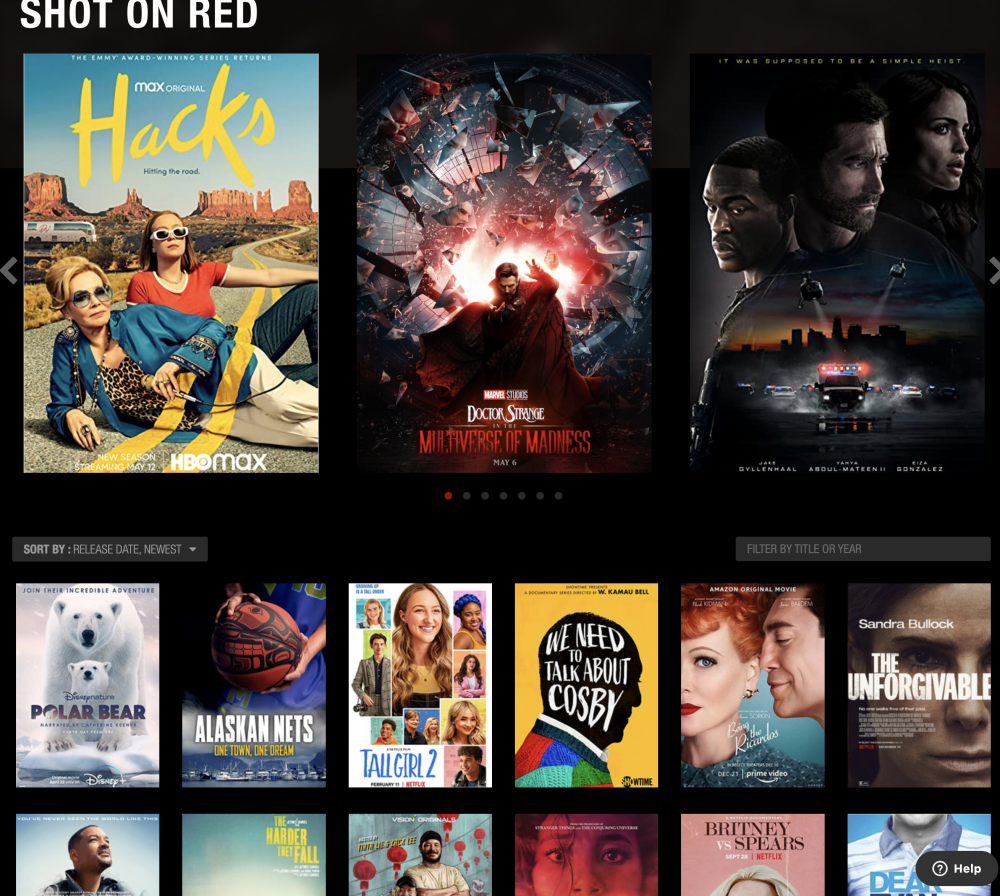-
Posts
769 -
Joined
-
Last visited
Content Type
Profiles
Forums
Articles
Posts posted by Tim Sewell
-
-
-
On 5/3/2022 at 3:05 AM, kye said:
and being amazed the world doesn't fall apart
Wait, what? The world _isn't_ falling apart?
- webrunner5 and IronFilm
-
 1
1
-
 1
1
-
-
I'm very happy with my Mavic Mini 2. The only thing that would tempt me to upgrade would be a 10 bit log option, or an adjustable aperture, or both (!) in a <250g drone.
- Emanuel, gt3rs and Mark Romero 2
-
 3
3
-
Panasonic GH6
In: Cameras
Probably won't find a more in-depth review than this one - I think I might have to book a day off to read it! https://www.newsshooter.com/2022/02/22/panasonic-gh6-review/
-
The Aesthetic
In: Cameras
Really the title of the thread says all that needs to be said. The aesthetic. You shoot on whatever you need to shoot on to achieve the aesthetic you want. If the aesthetic is the measure, then, qualitatively, the perfect camera can be an iPhone, an EOS-M or a Panavision DXL package. Fincher likes the resolution as high as possible, other directors/DPs want something more lo-fi (for *this* project - might want something else entirely for *that* project). If we're talking art then the best cameras and lenses are the cameras and lenses that best realise the artist's vision.
No need for any argument, really.- webrunner5, Video Hummus and PannySVHS
-
 3
3
-
The Aesthetic
In: Cameras
On 2/4/2022 at 4:59 AM, Video Hummus said:So in conclusion. It doesn't matter what resolution you shoot at because what matters most for these kind of productions is the lens choices, lighting, set production, camera positioning and movement, and talented colorists.
Not just those considerations - also actors who can stay on their mark, who can repeat the scene multiple times without screwing up. I forget the film and the director, but I heard a tale about Bette Davis where the director told her 'we're going to track up the stairs and along the corridor in a continuous shot, then enter the room and dolly to a close up on your face, where a tear is just starting to form.' 'Which eye do you want the tear in?' asked Davis.
-
5 minutes ago, BenEricson said:
Give 100 people the same camera setup and have them shoot locked off shots, I promise you it won't look this good. At least half of those 100 would be shooting ducks in a park like Philip Bloom.
Now I actually think that Phil has a great eye, but I fully support the rest of your comment. I went out yesterday, inspired by MK, trying to find shots like hers - beautifully composed, inviting, rewarding of prolonged viewing - and it's really, really fucking hard. My admiration for her goes way beyond the technical - she strikes me as a true artist. And I'll take a moment to say that if I was shooting a scene in a city nightscape I would for sure let some of those LEDs flicker, because it immediately provokes an emotional reaction that says 'city'.
Here's her latest and I'd be interested to see any work shot with the A7IV that comes anywhere close:
-
That's fantastic and, may I say, somewhat Tarantinoesque (in a good way, a very good way)!
-
The videos uploaded by L.A. cinematographer M. K. Rhodes are, in my opinion, utterly mesmerising. Shooting mainly on the Komodo, she captures the city at night in a truly beautiful way. This is my favourite, so far.
- BenEricson and Emanuel
-
 1
1
-
 1
1
-
-
The Ninja V+ is going to support raw via SDI from the FS5 (with the raw licence) or the FS5ii and the FS700 out of the box with its latest firmware updates. It will also support it from the raw back on the FS7.
-
Gotta say I reaaaalllly don't like that Pana 20-60. I used it on this shoot for the short bits when I was on the gimbal and next to the images from my copy of the aforementioned Tokina 28-70 ATX Pro 2.6-2.8 (which I love) it was so videoish as to render some of the clips unusable due to my inability to get them even close to matching. I also used my 35mm, 85mm and 135mm Super Taks, so covered all the bases WRT this thread!
-
You're back!
In: Cameras
Thank God! An essential part of my work dodging bookmark list is back!
- John Matthews, Emanuel and IronFilm
-
 2
2
-
 1
1
-
-
-
Alexa Bargain
In: Cameras
User Attila Svideo (who seems well-established) has an Alexa Classic at £4K GBP in the Film gear For Sale facebook group: https://www.facebook.com/groups/filmgearforsale/permalink/4368035193312329/?sale_post_id=4368035193312329
-
-
I backed it after seeing your post. Just the 1TB version for now. If it lives up to what they promise it's a fairly irresistible price.
-
Personally I'm not that bothered about AF, but I can see it must be frustrating for some. To my eye, what comes off my S1 is far superior, IQ and colour-wise (and that highlight roll-off!) to any other camera I've owned. If I were someone to whom AF was important I'd be mighty pissed if a beast like that was off-limits to me because of the slightly inexplicable absence of that one key feature.
-
21 hours ago, mercer said:
Great work, Tim. Some of your shots seem familiar. Do you have a Canonet QL17 Giii and have posted some of your shots on Flickr?
I love the idea of processing my own film, but I don't have the space to do it. Have you ever used the Cafenol processing?
Thanks - I especially appreciate your words as I really like the stuff of yours that I've seen over the years.
I have posted some film shots on Flickr, but my Canonet is the 19 (the cheap one!).
I haven't tried Cafenol. It's somewhere on my list. But you mustn't feel you need loads of space to process. Even when I was doing colour as well I could pretty much fit the whole kit into the small plastic storage box I used as a tempering bath!
Took up about 1/20 of the space my video kit occupies (much to my wife's chagrin).
-
I got quite deep into film stills a couple of years ago and have continued, albeit at a slower rate, since then. Of course, when I started photography, film was all there was! I cut my teeth working a darkroom and assisting/being second shooter for a freelance press/social/commercial photographer in the late 80s - best fun job I've ever had, TBH.
In my more recent forays I've mainly used an Olympus OM-1 (once my dream camera) a Canon V, an Electro 35 and various other rangefinders. Favourite films would be Portra 160, Fuji Acros and Fujifilm Industrial 200. At one point I was processing both colour and B&W, using a polythene packing case with a sous-vide wand as a tempering tank. Nowadays I get the colour processed, but I'm rather fond of stand-processing my B&W, which is a much more relaxing method of film development than the rather demanding process of home C41 processing. I use a Nikon 35mm film scanner that was the most expensive item out of all the stuff I acquired for the 'project'.
There's a selection of shots (some good, some bad, some just family snaps) on my photo website https://www.vrimage.co.uk/IShootFilm
-
If I've properly understood what you're looking for, Wooden Camera make lens adapter supports that screw on to their top plates, hang down and clamp to the adapter, taking all the strain off the mount and keeping the adapter firmly in place. Unfortunately, as far as I can tell, they only make these for some Sony cameras - but you might be able to bodge something together.
-
2 hours ago, fuzzynormal said:
If the dolly bumps in a few places, "oh well!"
I wouldn't go that far.




ARRI's brand new 4K S35 sensor is mere weeks away
In: Cameras
Posted
He has a long-standing relationship with Arri in LA.